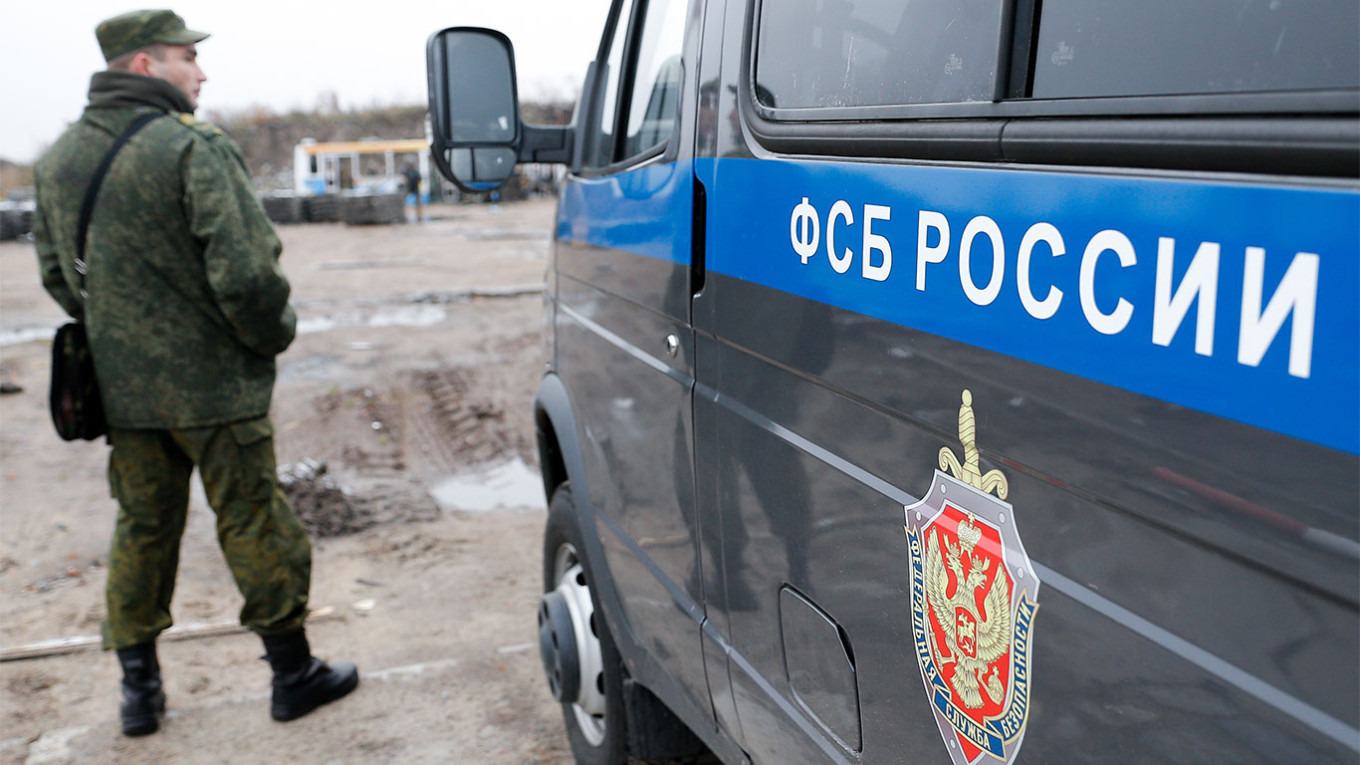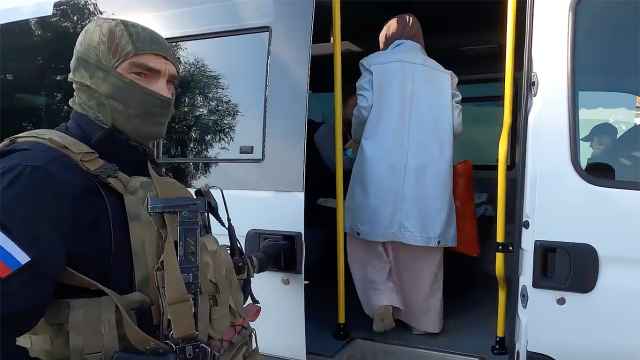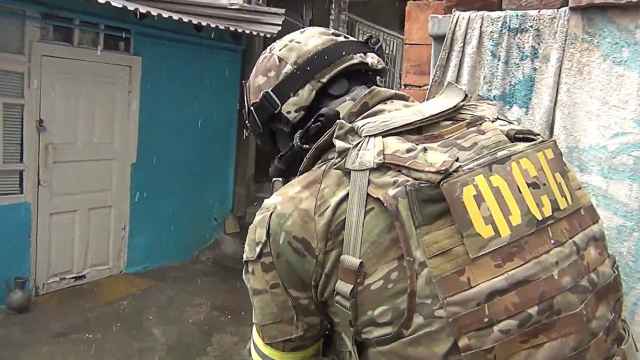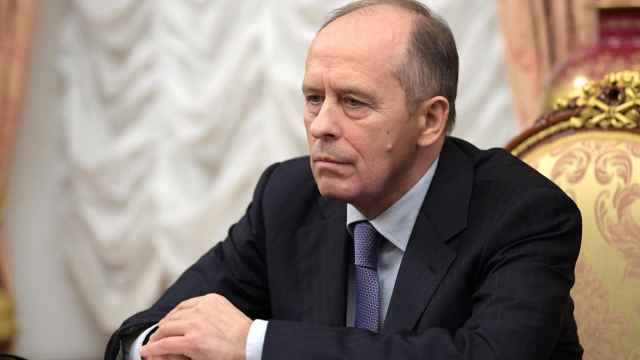Russia's Federal Security Service (FSB) said Friday that it detained a would-be female bomber suspected of plotting a Victory Day attack on law enforcement officers in the North Caucasus republic of Dagestan.
The 28-year-old Russian citizen was described as a "supporter of an international terrorist organization banned in Russia," the FSB said in a statement, without specifying which organization.
The FSB said authorities seized explosive materials and electronic devices containing correspondence with a member of the terrorist group during searches of her home.
The woman was allegedly planning to detonate an improvised explosive device in Dagestan's Khasavyurtovsky district, which neighbors the republic of Chechnya to the west.
The state-run TASS news agency shared a video of the woman appearing to confess to being instructed to photograph buildings and purchase explosive components by a person named "Abdullah," whom she met in an "Islamic group" on the Telegram messaging app.
"I was either to plant [the explosive device] or blow myself up," she said.
She said she had been instructed to carry out the attack on May 9, when Russia holds nationwide commemorations of the Soviet victory over Nazi Germany in World War II.
It was not immediately possible to verify the FSB’s claims, and it remains unclear whether the woman was speaking under duress.
The FSB did not say if the detainee had been formally charged.
The agency regularly announces that it has thwarted attempted terrorist attacks.
Female suicide bombers known as "black widows" were behind two dozen suicide bombings in Russian cities and aboard trains and planes in the early 2000s.
All were linked to an Islamic insurgency that spread throughout Dagestan and the wider North Caucasus region after Moscow fought two wars against separatists in neighboring Chechnya.
A Message from The Moscow Times:
Dear readers,
We are facing unprecedented challenges. Russia's Prosecutor General's Office has designated The Moscow Times as an "undesirable" organization, criminalizing our work and putting our staff at risk of prosecution. This follows our earlier unjust labeling as a "foreign agent."
These actions are direct attempts to silence independent journalism in Russia. The authorities claim our work "discredits the decisions of the Russian leadership." We see things differently: we strive to provide accurate, unbiased reporting on Russia.
We, the journalists of The Moscow Times, refuse to be silenced. But to continue our work, we need your help.
Your support, no matter how small, makes a world of difference. If you can, please support us monthly starting from just $2. It's quick to set up, and every contribution makes a significant impact.
By supporting The Moscow Times, you're defending open, independent journalism in the face of repression. Thank you for standing with us.
Remind me later.






